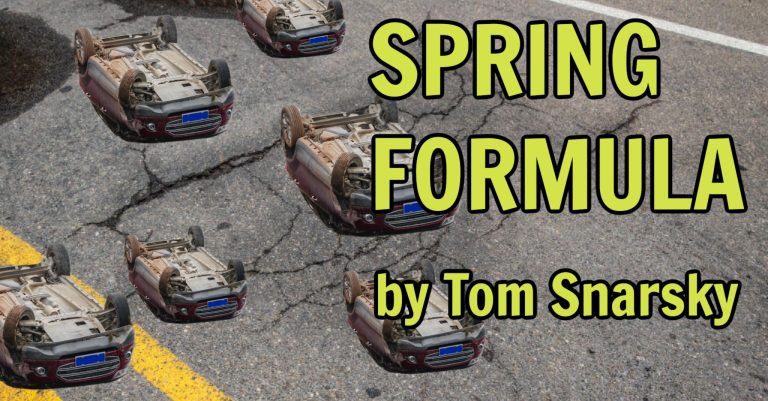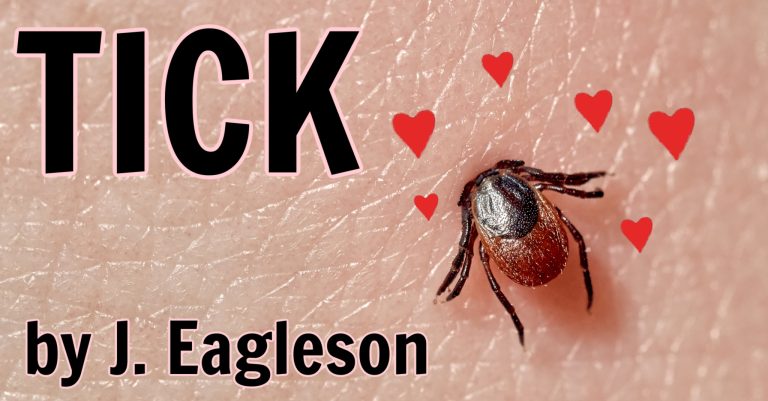
SPRING FORMULA by Tom Snarsky
I notice some crocodile cracking near the bend, which is already pitched the wrong way—against the turn, so as a car’s tires point left the road’s normal force pushes it right, recipe for a rollover—and think somebody’s going to get killed. So I go to the municipal office to complain, but no one’s there. BE BACK SOON says the sign. So I grab one of the envelopes and start to write on it, just right on the envelope, my name is Ryan Pendleton I live at 29 Keep Tryst Rd in the Hermitage and someone’s going to get hurt and









